
Venezuelans find helping hands in their journey through the Andean countries. Healthy meals give them the strength they need to start over again and dream of a brighter future for them and their families.
Ariana Gonzalez, a 24 year-old single mom to two young boys, lives in Quito right on the skirt of the Pichincha volcano. She arrived in Ecuador four months ago, in November of 2022. Today she shares a two-bedroom apartment with another Venezuelan family.
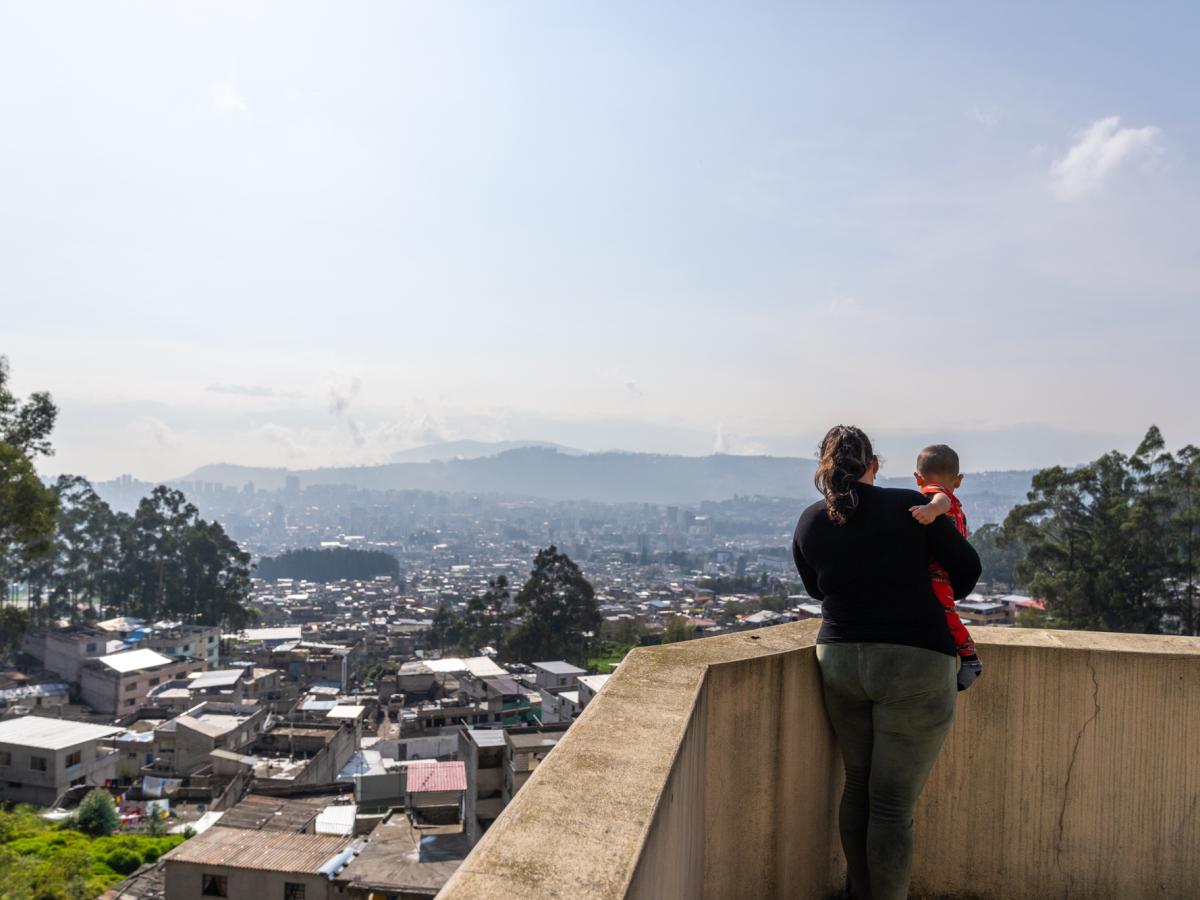
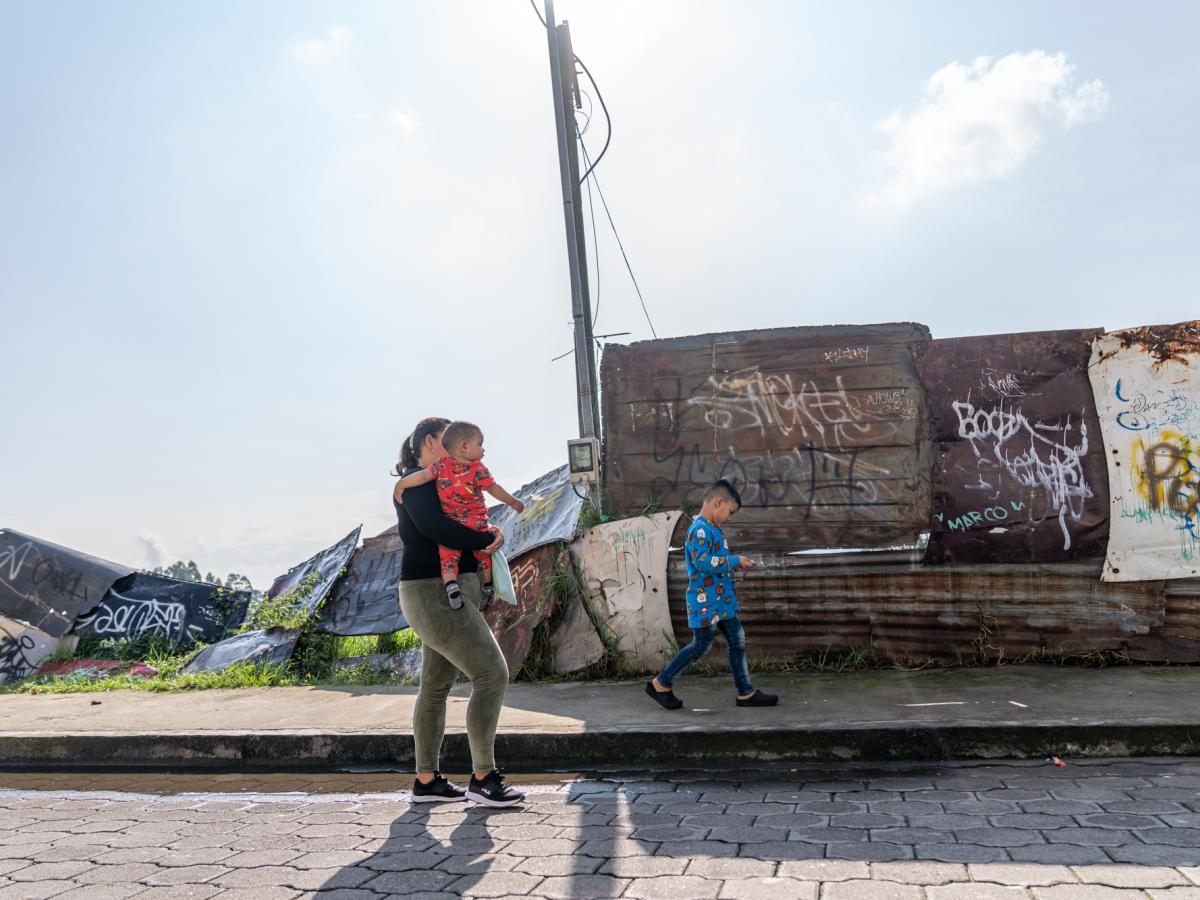
For her, making the decision to leave Venezuela was one of the most difficult decisions in her life.
“For more than four years, migrating was an idea spinning around in my head, but the fear of traveling alone with my two children held me back.”
It was not until Ariana and her two little ones went to bed with an empty stomach for more than a week straight that despair and anguish took over.
“My kids were crying every night for food. It broke my heart to see them cry.”
Without thinking twice, she packed her bags, and decided to start over from scratch in Ecuador. At that point, she lost all fears of traveling alone and embarking on a new journey.
She says she did not have a lot of bags with her. She prioritized the kids key belongings, their clothes and their favorite toys for the trip–one of them a Winnie the Pooh stuffed toy that is her toddler’s favorite. She thought the toys were important to make the boys feel more at home.
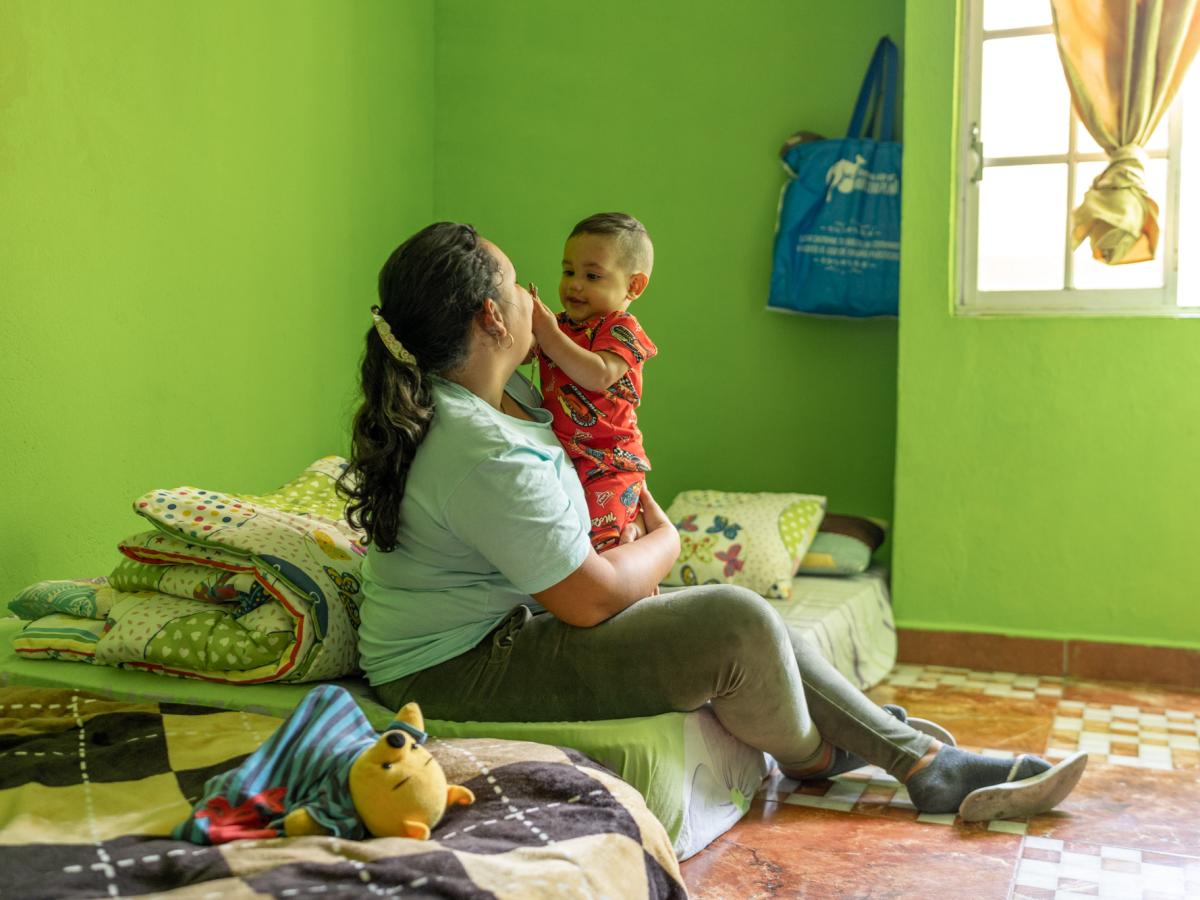
In Ecuador she was met and hosted by an old friend from Venezuela, Maria. They grew up together and became really close over the years. Maria and her partner had settled in Ecuador two years before Ariana arrived, helping her find her way around and offering a support system. Maria and Ariana find great joy in helping each other out. They refer to each other as their chosen family. Ariana now lives in a two-bedroom apartment that she shares with another Venezuelan family.

Once in Ecuador, Ariana learned of various types of assistance being offered to Venezuelan migrants. Through the organization Plan International, she learned of USAID’s food assistance being provided through the World Food Programme.
In December 2022, she started receiving assistance provided to newly arrived Venezuelans in Ecuador. Thanks to this aid she is able to buy the necessary food for her family for six months. This gives her some peace of mind. She knows her children have the necessary food regardless of the type of work and income she has.
“We eat potatoes, bananas, rice, pasta, everything. We eat grains, vegetables, and fruits. My older son likes to eat toast with lettuce and tomato.”
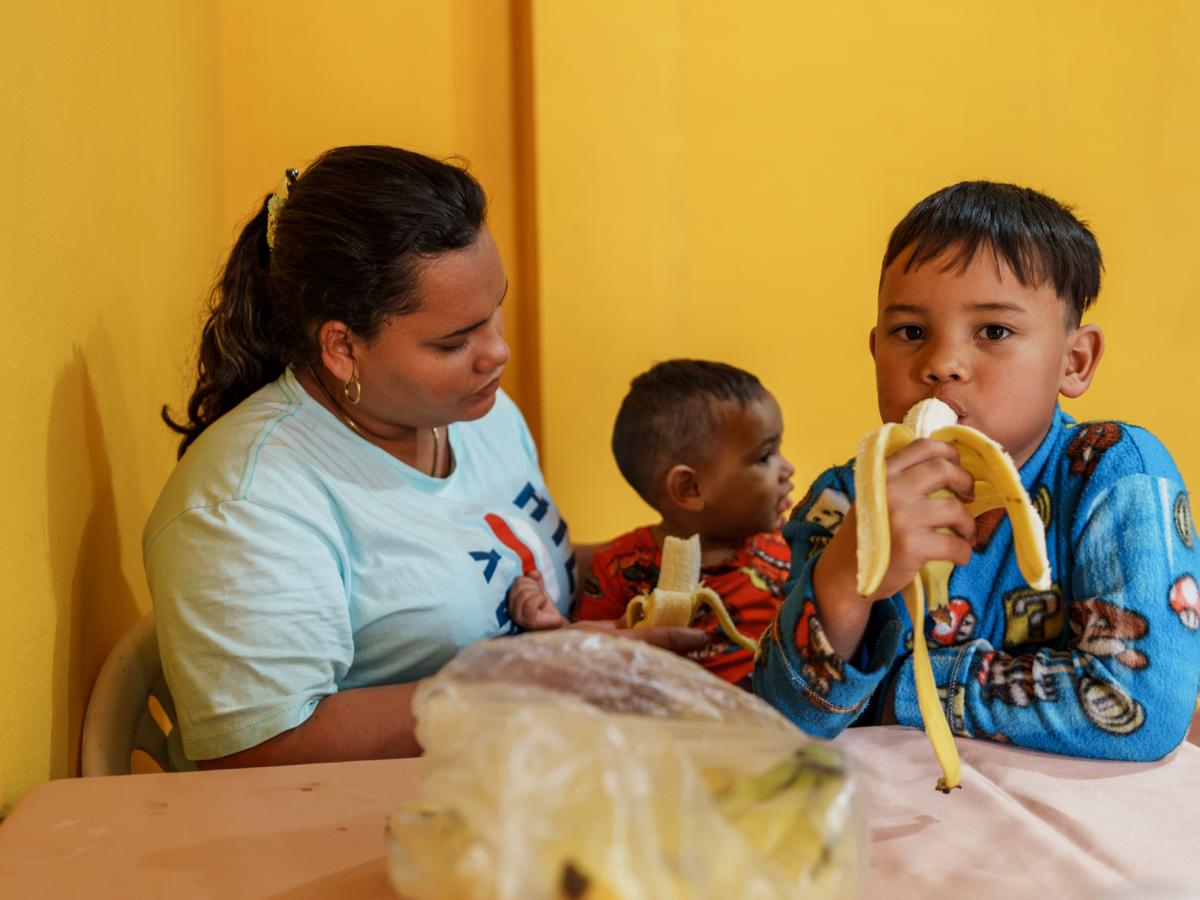
Ariana was only able to finish high school. Like many women in the region, she married and became a housewife at a very young age. Seeking higher education was not an option.
As a recently arrived migrant in Ecuador, she is working in the informal economy cleaning houses and restaurants. Her income is not steady. Some days there is work, some days there is not. She relies on her friend Maria to look after her children so she can work. She is also working on enrolling her 7 year old son in school.
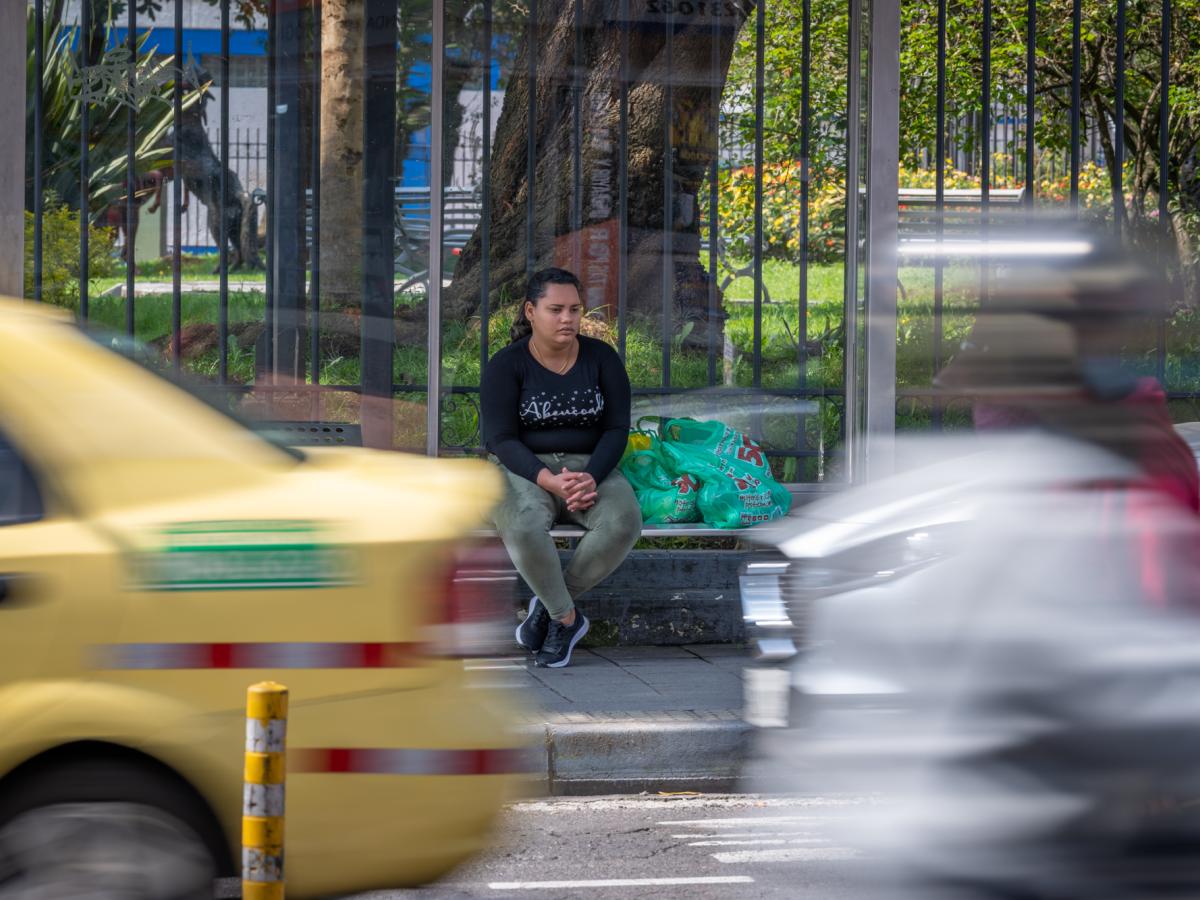
She feels reassured knowing that she will be able to obtain food assistance for her baby boy until he is two years old. In June of 2023, she will qualify for the “1,000 days” program, which will ensure her baby boy has the necessary food he needs until he is two years old.
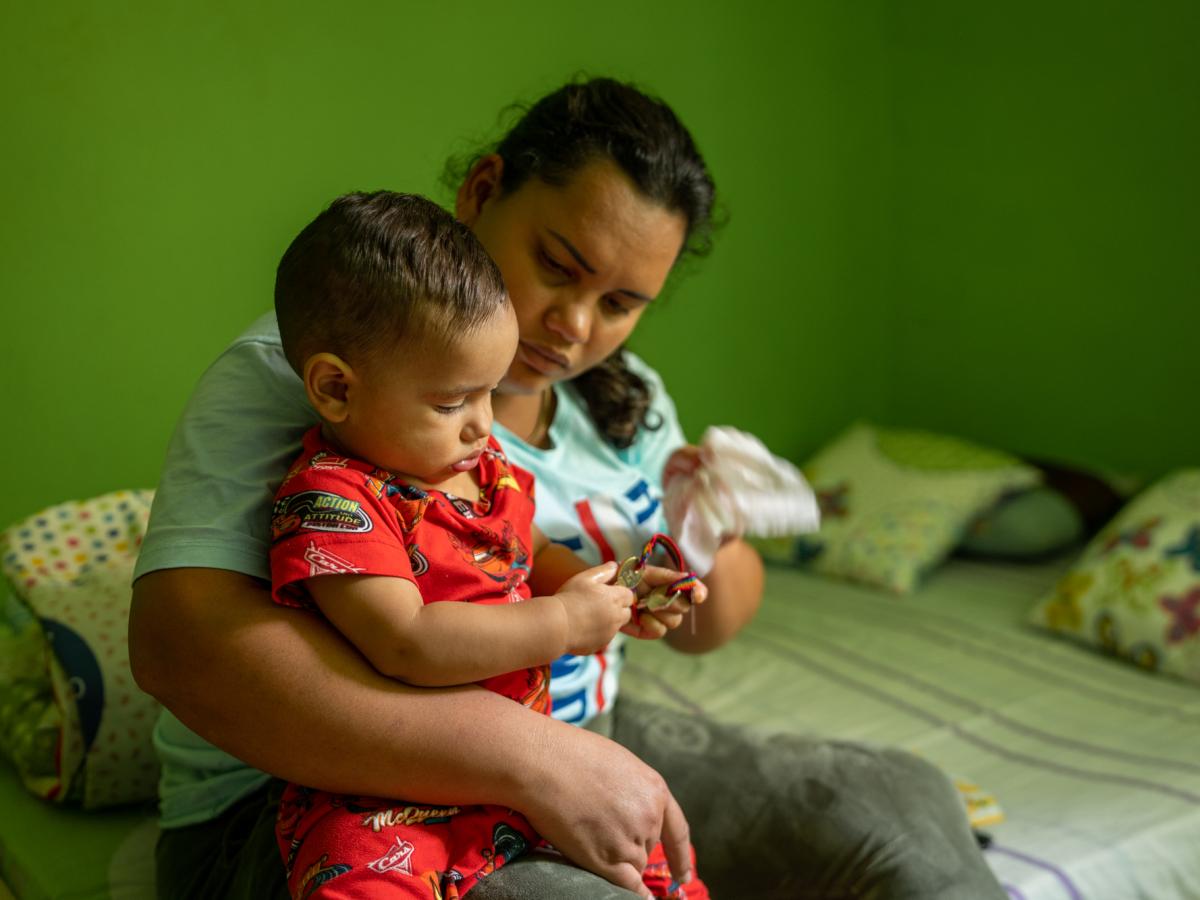
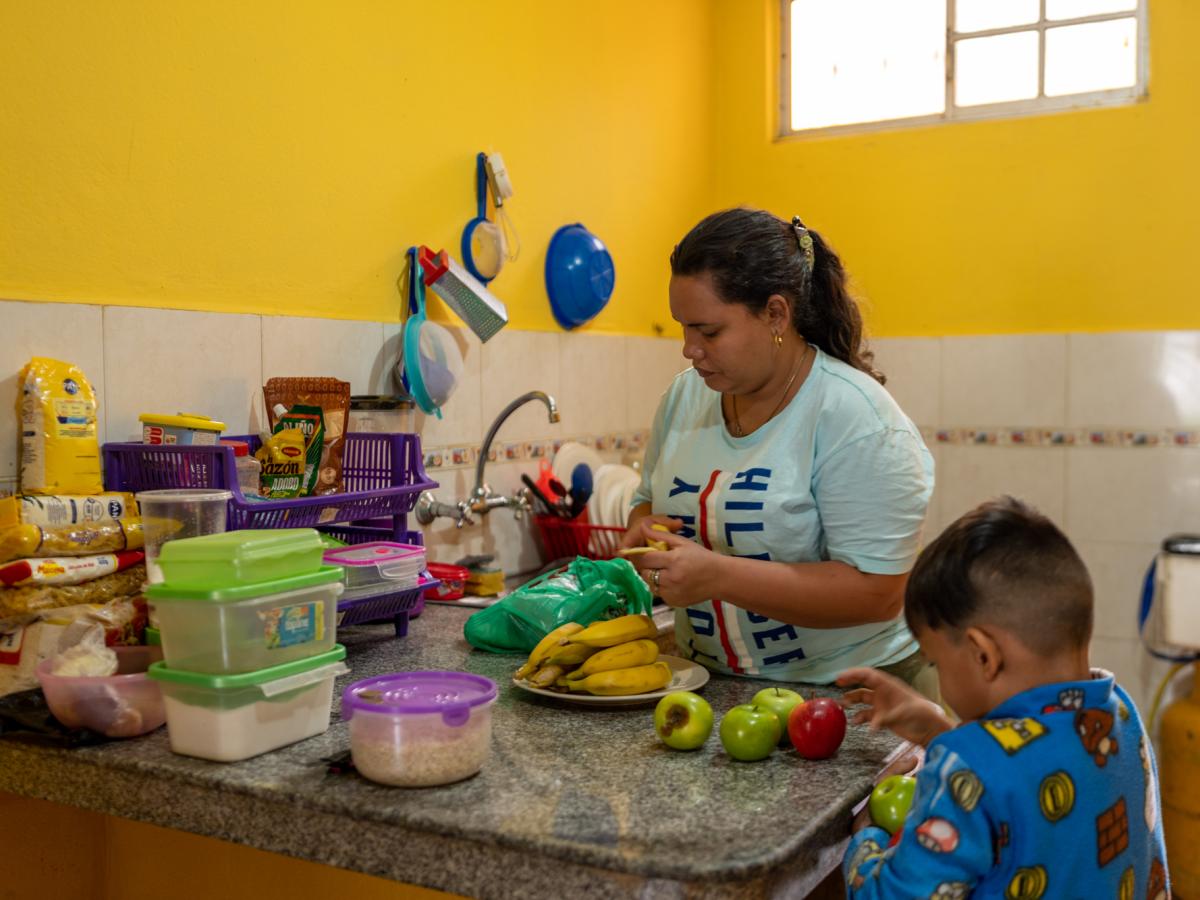
“I don't regret coming here because my children have a better life. They are eating well. We are better off here, even if we sleep on a mattress on the floor.”
Food assistance is a relief for her because it covers the cost of what was most important from the beginning, food for her family.
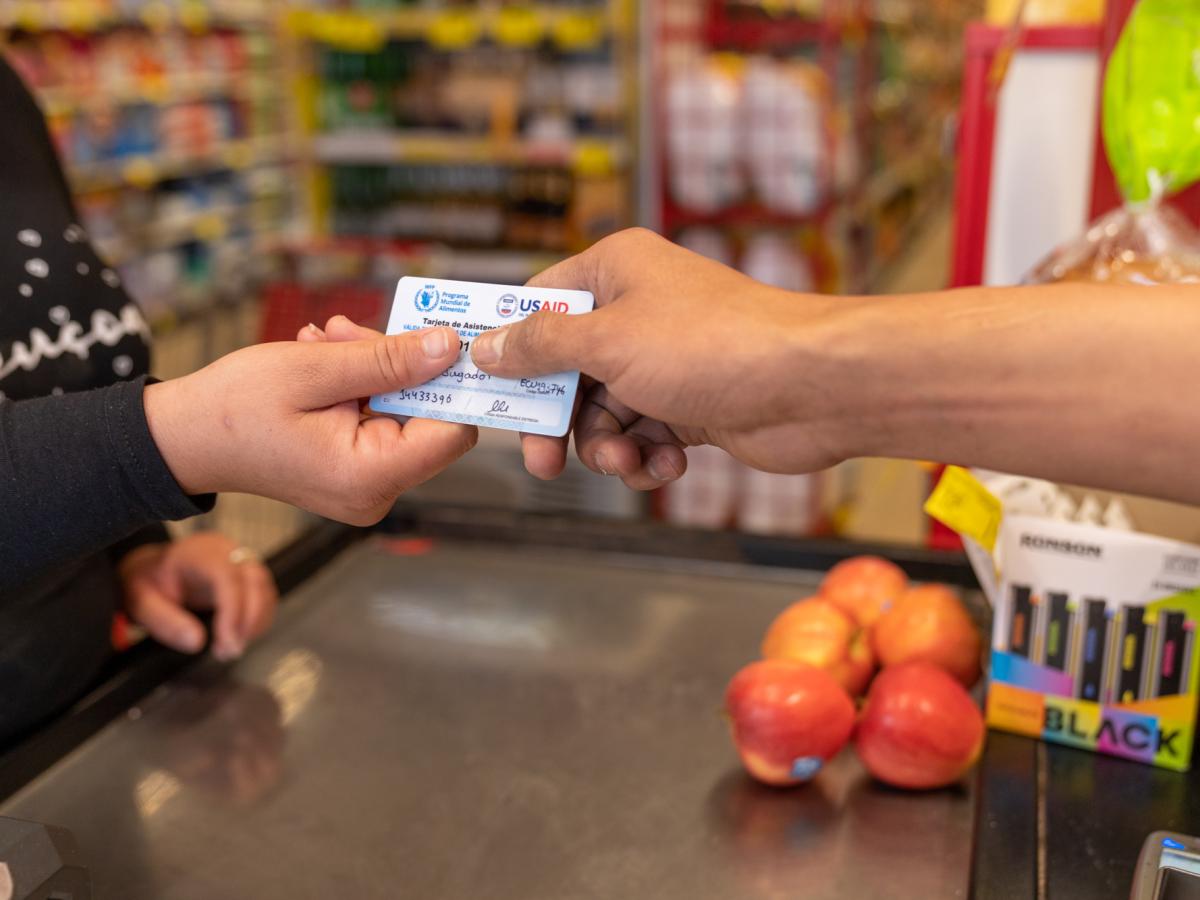
ABOUT THIS STORY
Follow USAID's work in Latin America and the Caribbean on Twitter.
Venezuelans have been forced to emigrate due to dire political, economic, and social conditions at home. Many are suffering from food insecurity and need help in establishing a new livelihood in their host country. USAID’s Bureau for Humanitarian Assistance (BHA) funds the UN World Food Program (WFP) to provide food-insecure Venezuelans and Ecuadorian host communities, with hot meals, locally procured in-kind food, and food vouchers that allow households to purchase local, nutritious foods.
Over 600,000 Venezuelans and Ecuadorians have benefitted and found hope for a better, brighter future thanks to this assistance.
Footnotes
Photos and narrative by the UN World Food Programme in Ecuador
